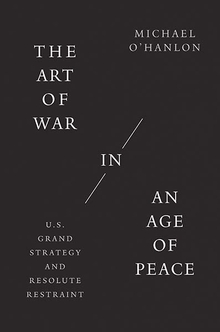President Joe Biden has taken quite the beating for saying at a January 19 press conference that the United States and its allies might be divided over a
“minor” Russian “incursion” into Ukraine. But Biden has nonetheless gotten two big things right in his thinking about how to deter Vladimir Putin from attacking his smaller neighbor. First, the U.S. military will not enter any war that might ensue. Ukraine, while important, is not a treaty ally — and we will not risk war with nuclear-armed Russia to protect it. Second, the magnitude of the U.S. and allied response to any Russian aggression must be proportionate.
What’s missing, however, is a bolder plan for what will happen to Russia if Putin tries to gobble up significant parts of Ukraine. There must be no business as usual between the West and his nation. Our most powerful weapon is to sanction energy exports that provide Russia the money it needs to finance mischief abroad. Yet the Biden administration and Europe, alike, have deliberately excluded oil and gas trade from threatened sanctions. That is a mistake. Ignoring how Russia makes money from energy weakens our deterrence against Putin, as he considers what to do with the 100,000 Russian troops currently menacing Ukraine’s borders.
Putin, seeing that the West lacks both a plan and the stomach to cut its dependence on Russian energy supplies anytime soon, thinks he has a strong hand to play.
Over the short term, there are worries that an invasion could cause a shutoff of Russian gas that flows across Ukraine to Western customers — especially those in places like Austria and Slovakia that don’t have enough other sources of fuel. Whether that happens depends on how the crisis unfolds. If Russia doesn’t invade, the gas keeps flowing because Ukraine, like Russia, needs the money; Ukraine also needs the gas for its own heating as well. A successful blitzkrieg, if truly possible, could in principle have the same effect, with Russian forces quickly securing compressors and valves and keeping the Ukrainian gas transit system open. But a messy, lingering invasion — perhaps with insurgent groups blowing up assets — would spell bigger trouble.
How bizarre, and counterproductive, would it be for Western governments to be encouraging Ukraine’s general resistance to Russia’s potential aggression while simultaneously asking Ukraine to protect the pipelines carrying Russian gas to the West. Even more ironic, yet necessary, is that European governments and the Biden administration are scrambling to shore up as many extra supplies of fossil natural gas as possible for a wartime contingency, including from Russia, and rewarding companies that build new gas pipelines. Some European governments are so fearful of public backlash to rising energy costs that they are subsidizing energy, including gas. All these expedient actions run directly contrary to what Europe and the United States profess as their long-term interest in cutting dependence on fossil fuels to address climate change. And Moscow is watching. It knows that Western dreams of shaking any dependence on gas for alternatives like renewable power will take a long time to bear fruit and, so far, aren’t that credible in a crisis.
The West needs to do its utmost to reverse the direction of energy leverage. Ultimately, Russia needs European markets more than Europe needs Russian gas. After all, Russia supplies more than 40% of the European Union’s natural gas imports. But Russia depends on energy exports for nearly 60% of all the goods and services the country sells abroad.
The United States and, most of all, its EU partners must begin immediate and more muscular sanctions if Russia invades — focused on energy exports and earnings. It will be hard to have a quick impact, of course, because Russia already has a grip on European gas supplies and is one of the world’s lowest-cost oil producers. Existing Russian tax and energy policy is already designed to lessen dependence on Western technology, but it can only have so much impact in the face of unified Western sanctions. A smart sanctions policy would include a credible, expedited schedule for phasing down imports and phasing out access to Western technology. It would also include antitrust actions against Russian abuse of gas markets. When those markets are tight, as they are today, Russia can withhold supplies and underutilize the pipelines it already has to drive up prices — higher prices aren’t just bad for consumers, they fuel the foreign adventures of the Russian state.
More specifically, a new Western energy policy in response to a Russian attack on Ukraine should include a) subsidies to non-Russian suppliers, with bigger subsidies for greener alternatives; b) antitrust enforcement to force open the market to new suppliers and pare back the Russian role; and c) an active innovation program, building on what the EU already has, to develop alternatives to conventional gas so that buyers will, in time, have those options.
Vladimir Putin has said that, if the West imposes new sanctions on Russia over a crisis in Ukraine, it will lead to a rupture in relations. We need to call his bluff — and up the ante. If Russia attacks a sovereign country in Europe again, and especially if it is even more aggressive than in the past, there can be no business as usual in energy economics.
Ukraine is important to us but not vital, which is why it should not be a NATO ally but why the crisis in Ukraine must redouble the focus on what’s needed for the long term — which is less dependence on Russian gas and more pressure on Russian suppliers so they generate smaller incomes and fewer resources that the Russian state can deploy for mischief. Moscow must learn that escalation in Ukraine will darken its economic prognosis for the 2020s and beyond. Right now, that lesson hasn’t been delivered







Keine Kommentare:
Kommentar veröffentlichen